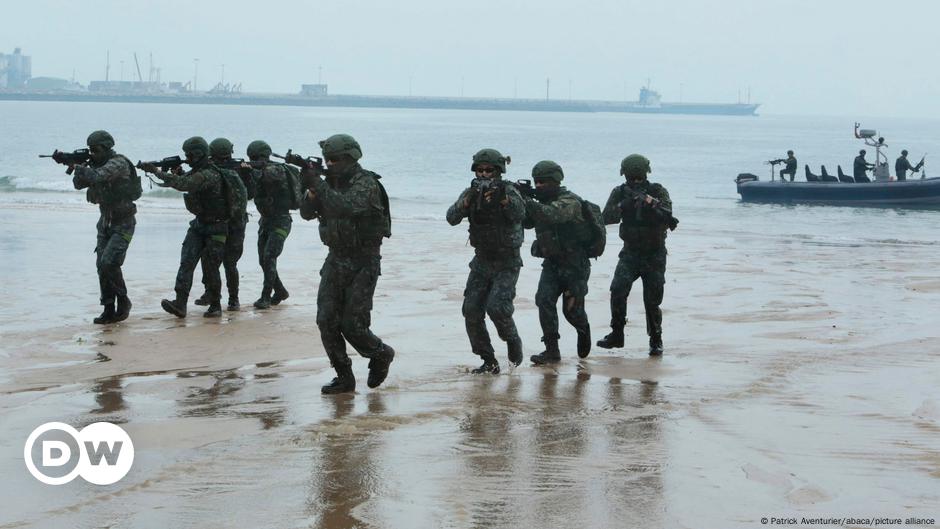More than two-thirds of Taiwanese people would be willing to fight off a Chinese invasion of their island, a new survey found. Just over half of respondents believe that the United States would send its military to help.
Most Taiwanese people would be willing to defend their island against a Chinese attack, according to a poll published Wednesday. Most also believe that such an attack is highly unlikely in the next five years.
The poll, commissioned by the Institute for National Defense and Security Research, was released a day before Taiwan’s National Day.
Should Beijing attack, 67.8% of the 1,214 people surveyed said they would be “very willing or somewhat willing” to fight in defense of Taiwan; 23.6% said they would not be.
Almost 64% said China’s “territorial ambition” in Taiwan represents “a serious threat.” At the same time, 61% said it was not likely China would invade soon.
Some 52% of respondents said that they believed key ally the United States would come to their aid in the invent of a Chinese invasion. Yet, only 40% believed that the US would send its navy to “break” a potential blockade.



I’d argue that position would hold more water if politicians didn’t need to be approved before running for office in Hong Kong. I think that’s emblematic of how seriously the CCP takes self-determination.
Hong Kong is actually a perfect example for what I’m talking about. It was a concession China made to the British after losing the first Opium war. As such, it was always going to be a sore spot for the PRC. On top of that, the British only introduced a pretty limited form of democracy to Hong Kong shortly before it was supposed to relinquish control over the territory. The PRC saw this as an attempt by the British to continue interfering with the right for Chinese self determination. They believed the British were intentionally making it more difficult for the PRC to integrate Hong Kong into its existing political structures. After the handover, the PRC took extreme offense at pro democracy protestors using the old colonial flag for Hong Kong. That was because they perceived it as a call for further foreign interference in Chinese affairs.